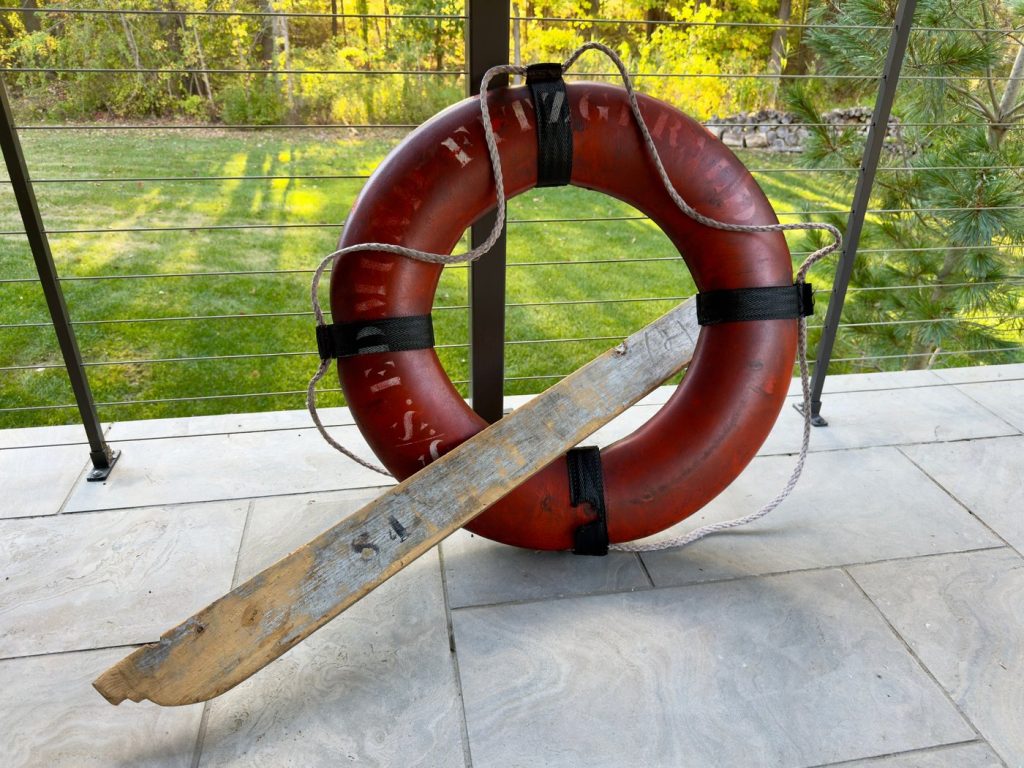DETROIT (AP) — The state of Michigan is relinquishing ownership of a rare artifact associated with the famous Edmund Fitzgerald shipwreck, just weeks after it unexpectedly acquired the life ring through a lawsuit settlement unrelated to the ship itself. This decision comes as Larry Orr is set to receive one of the life rings from the ill-fated freighter, alongside a settlement payment of $600,000 related to a police misconduct lawsuit.
Larry Orr, now 77 years old, recounted how he found the life ring and a piece of a lifeboat along the shores of Michigan’s Upper Peninsula shortly after the Edmund Fitzgerald sank in Lake Superior in 1975, tragically claiming the lives of all 29 crew members. “There was an eerie feeling. Maybe someone had survived,” Orr reflected, remembering his search for any signs of life at the time.
Fast forward to the present, Orr had been in negotiations with the Michigan State Police to settle a lawsuit stemming from allegations that Lt. David Busacca violated his rights during a discredited sexual abuse investigation. After spending five months in jail and enduring house arrest, Orr had charges dropped in 2019. The state’s interest in the Fitzgerald life ring arose during these settlement discussions, which Orr found questionable, particularly since Busacca was aware of Orr’s ownership of the ring from a previous search of his home.
Feeling pressured but needing funds to move out of his recreational vehicle in Yulee, Florida, Orr and his attorney, Shannon Smith, agreed to include the life ring as part of the settlement to raise the compensation from approximately $300,000 to $600,000. Orr expressed his dissatisfaction with the amount, asserting, "I think we should have gotten a million for everything they did to me."
Upon the Associated Press's inquiry about the state police's motivations for pursuing the life ring, spokesperson Shanon Banner stated that the department was “not comfortable” addressing the issue. Following additional negotiations among legal representatives, a new agreement emerged: Orr would retain the life ring, while the state would still pay $600,000 to settle the misconduct claim against the police department.
Orr had previously allowed the Great Lakes Shipwreck Museum in Paradise, Michigan, to exhibit the orange life ring, featuring the stenciled name “Fitzgerald.” Now, with plans to sell the ring at auction, Orr is seeking to purchase a modular home and replace his wife’s aging vehicle, stating, “I need all the money I can get.”
This unfolding narrative highlights the complexities of legal negotiations involving historic artifacts and the personal struggles of individuals intertwined with such legacies. As the state of Michigan steps back from ownership, Orr finds himself at a crossroads, balancing his historical connection to the Edmund Fitzgerald with the pressing need for financial stability.











